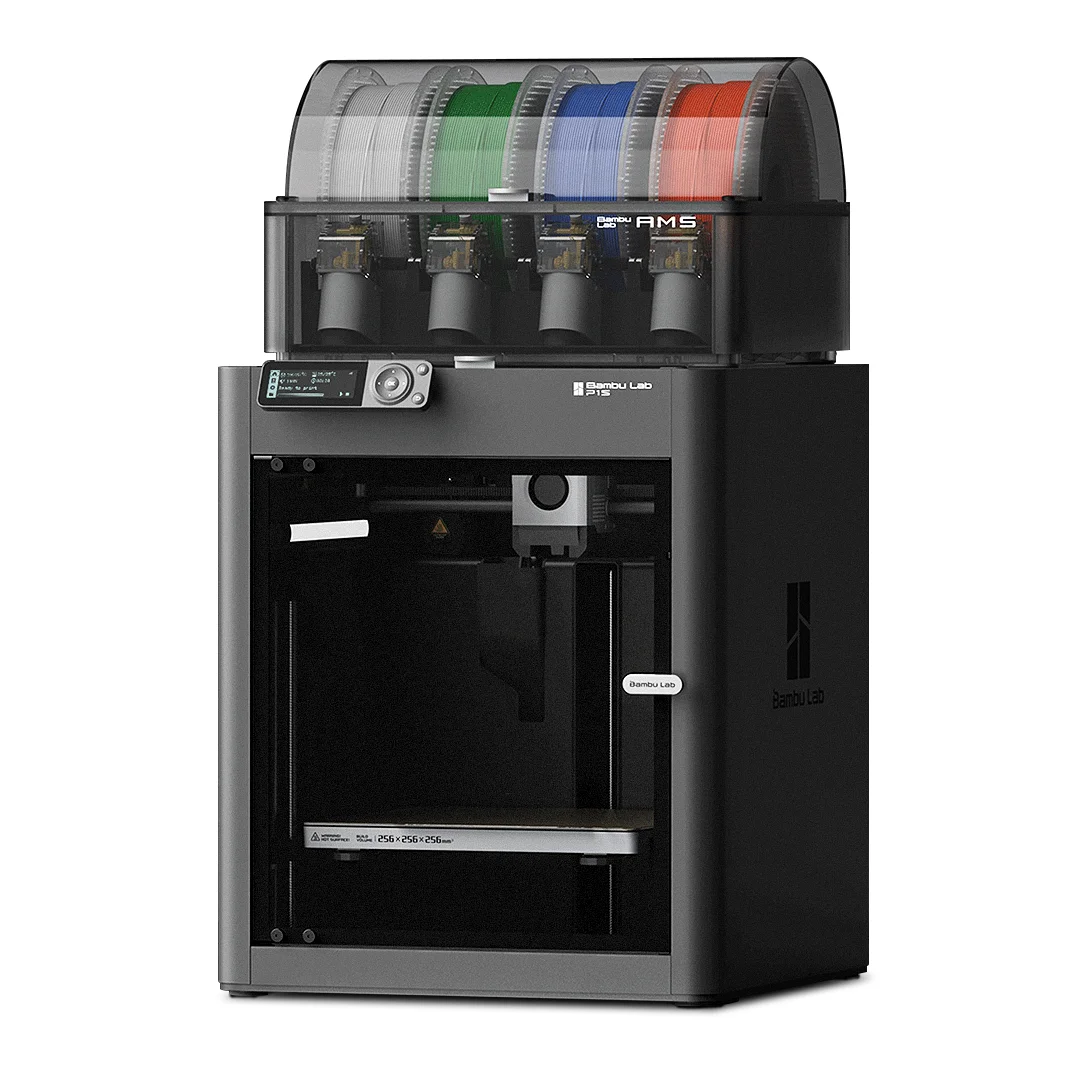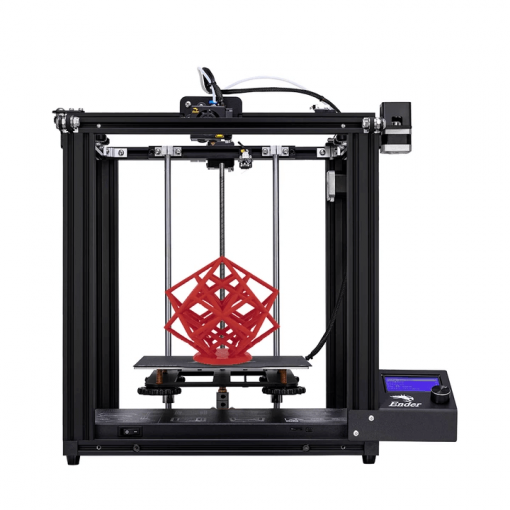Compare P1S vs Ender 5
Comparison between the best 3D printers
Choose the best 3D printer at the best price. The cheapest 3D printers are here.
Buy a 3D printer here with 3D Fila.
 |
 |
|
| Model | P1S[BUY P1S] |
Ender 5[BUY Ender 5] |
| Printing Material | Filament | Filament |
| Buy Filament for Bambu Lab P1S | Buy Filament forCreality 3D Ender 5 | |
| Estimated price | $949,00 | $399,00 |
| Manufacturer | Bambu Lab | Creality 3D |
| Release Year | 2023 | 2020 |
| Print Volume [mm] | 256x256x256 | 220x220x300 |
| Printer Size [mm] | 389x389x458 | 485x510x552 |
| Weight [kg] | 12,95 | 11,8 |
| Power Loss Recovery | YES | YES |
| Enclosed printer | YES | NO |
| Bed Leveling | Automatic | Manual |
| Filament End Sensor | YES | NO |
| Bed type | Heated | Heated |
| Power supply system | Direct Drive | Bowden |
| Standard nozzle | 0,4 | 0,4 |
| Maximum Nozzle Temperature [°C] | 300 | 255 |
| Maximum Bed Temperature [°C] | 100 | 100 |
| Maximum printing speed [mm/s] | 500 | 180 |
| Filament holder | YES | YES |
| Camera for supervision | YES | YES |
| Recommended filaments | PLA, PETG, TPU, PVA, PA, PA-CF, Nylon, PC | PLA, TPU, ABS, PETG |
| Recommended slicers | Bambu Studio, Super Slicer, Cura, Prusa Slicer, Orca | Cura, Simplify, Slic3r |
| Maximum Resolution [mm] | 0,1 | 0,1 |
| Processor | Quad ARM A7 1.2 GHz | 32 bits |
| Display | Touchscreen 5'' | Mono |
| Power Supply | 350 W | 24V / 360W |
| Connectivity | Wifi, Bambu bus, Cartão SD | SD / USB |
| Operating systems | Windows, Linux, Macbook | Windows, Mac, Linux |
| Date of registration in the system | 2024-04-11 | 2021-04-15 |
| Release date | 2023 | 2020 |
| Extra features | The Bambu Lab P1S stands out for its out-of-the-box practicality, eliminating the need for manual adjustments with automatic calibrations such as bed leveling and vibration compensation. It features multicolor printing capability through the AMS system, allowing up to 16 colors when connecting four AMS units. With an advanced control algorithm, the P1S offers fast printing speeds without sacrificing quality. Equipped with modern features such as filament end sensor, semi-automatic belt tension, direct extruder, welded frame and all-metal hotend, along with a fully enclosed chamber, the P1S promotes a superior printing experience, supporting a wide range of materials. | Crealitys Ender 5 stands out with a solid frame and a larger 220 x 220 x 300mm print volume. Its assembly is simple and quick, offering high print quality and speeds of up to 80mm/s. With a magnetic bed, it makes it easy to remove prints. Notable for being hackable and expandable, the Ender 5 continues Crealitys innovative tradition in the affordable 3D printer market. Equipped with a 350W/24V Meanwell power supply, it heats up quickly, in addition to having efficient cable management and modified Marlin firmware. Its unique design includes dedicated stepper motors for each axis and smooth movement on the Y axis, providing more consistent and detailed prints. |
| Support for multiple colors and materials (AMS and CFS) | YES | NO |
Notes * |
||
| Cost-benefit | 7 / 10 | 7 / 10 |
| Hardware | 6.4 / 10 | 1.5 / 10 |
| Tela | . | . |
| Print volume | 4 / 10 | 3 / 10 |
| Performance | 4 / 10 | 1 / 10 |
| [BUY P1S] | [BUY Ender 5] |
Conclusion |
| In conclusion, the Bambu Lab P1S and the Creality 3D Ender 5 cater to different user needs and preferences within the 3D printing market. The P1S is positioned as a high-end solution with modern features such as automatic bed leveling, advanced multi-color printing capabilities, and a fully enclosed printer design. It offers exceptional printing speed and material versatility, making it ideal for users seeking a robust and efficient printing experience right out of the box. Its higher price reflects these advanced functionalities, justifying its cost for professional and serious hobbyist users. On the other hand, the Ender 5 presents a more budget-friendly option appealing to entry-level users and enthusiasts who appreciate a DIY approach. It provides solid print quality and usability with a larger print volume but requires more manual setup and adjustments. The Ender 5's lower price makes it accessible for those who want to explore 3D printing without significant financial investment, while still allowing for customization and upgrades. Ultimately, the choice between the two printers hinges on budget constraints and the user's specific needs—whether they prioritize cutting-edge features and speed or prefer a simpler, more affordable model with potential for hands-on enhancement. |

